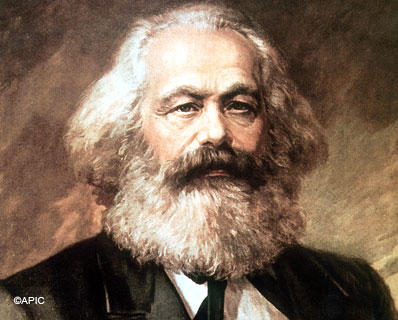
Most noted for influential ideas in the spheres of economics and labor, development of communist ideology. Marx’s most famous works are “The Communist Manifesto” and “Capital.”
Biographical Information
Marx’s ideology made a big impact on multiple spheres of life, such as economics, politics, and the structure of society. These ideas influenced educational systems and ideologies of the whole world. In 1844 Marx wrote “Economic and Philosophical Manuscripts” and explored his idea that a man has “free, conscious activity,” this idea made an impact on education (Price, 2012).
Marx believed that a person’s self-creation and self-education happen mainly through labor. Marx created stimulation for the educational systems to start teaching about the importance of labor and involving the students into their first labor experiences.
Historical/Political Context
The era when Marx’s most active stages of life happened was the time of class struggle in Europe. Marx was one of the radical thinkers and writers, involved in movements that were considered dangerous and extremist. Marx and his wife were banned from Paris and then from Germany for the kinds of articles the philosopher was writing, his ideas and his attempts to publish his own works and make them available for wider access. According to Karl Marx, society can be divided into two classes, called bourgeoisie and proletariat.
The philosopher wrote that capitalist society is the society ruled by the dictatorship and domination of the bourgeoisie class, where the rights, freedoms, and opportunities for the working class to develop were limited. This included the educational system; the children coming from not wealthy proletarian families were denied to have an education.
Beliefs on Education
Marx was the philosopher who used a materialistic approach in order to understand the processes of social development. This means that his ideas were based on the belief that humans have certain material needs, and that the physical conditions of their lives define the way the society develops.
Marx believed that all necessary material requirements are fulfilled through physical work. Physical work or labor was, according to Marx, a source of development and self-education. All the needed knowledge, essential for a good proletarian could be learned through being involved in labor.
Impact on Education
These days schools are no longer viewed as socially neutral institutions (Anyon, 2011). Schools are parts of the social structure, they are involved in political and economic issues, and they play a significant role in shaping society, its views, and ideas about the world and culture. Marx’s theories have created a big impact on the way society and the processes going on in it are being studied. His teachings about class-struggle as the basis of social development and a very important moving force in the economic structure of the countries.
Besides, Marx’s ideas have influenced the way history is being studied these days. Societies of the past are now viewed along the lines of class division and struggle, ruling layers of the societies and the working classes, connections between them and what happens when the boundaries between classes get erased or mixed, results of events leading to a situation when one class takes over the other class.
These are all very important processes; Marx has attracted the scholars’ attention towards them and helped the educational institutions widen their views and knowledge about these processes.
Others’ Criticisms
Many scholars these days support the opinion that Marx’s views, ideas, and teachings are old-fashioned and could only be applied for the society, politics, economy, and industry of his time (Rees, n. d.). It is a common opinion that today’s world is very different from the era when Marx lived and wrote his works; this is why his understanding of the world cannot be used by modern scholars. There was no way Marx could predict the development of industry and the way labor changes, the way it impacts the world’s economy.
This opinion is quite popular, yet far, not all modern scholars support it. According to this category of contemporaries, Marx has predicted many events and developed systems of criteria that are still met by modern societies.
For example, he correctly noticed that the structure of capitalist society is doomed to fail, as the occurrence of massive mega-corporations, which will defeat smaller business owners and traders, will lead to the economy controlled by a small number of leading corporations. Marx wrote that this would be the point when the moving force of development, such as competition seizes to exist.
Critique
I support the opinion that Marx’s ideas and teachings became the base of the modern understanding of important spheres of life such as social structure, economic development, labor and production, politics, history, industry and, of course, education. I believe that understanding of all these spheres of modern life comes to us through the education, Marx has significantly widened the perception of the world for people of his time, and he made an impact on the modern society.
Of course, some of his ideas cannot be applied to the relationships and processes happening in the modern world. Physical labor was one of Marx’s main principles of creating a happy proletarian. These days workers of intellectual labor are in much higher demand and more well-paid, they also require a proper education that in most cases cannot be received through physical labor.
Reference List
Anyon, J. (2011). Marx and Education. London, United Kingdom: Taylor and Francis.
Karl Marx [Image]. (2010). Web.
Price, R. F. (2012). Marx and Education in Russia and China. London, United Kingdom: Routledge.
Rees, J. Marx in the Modern World. Web.